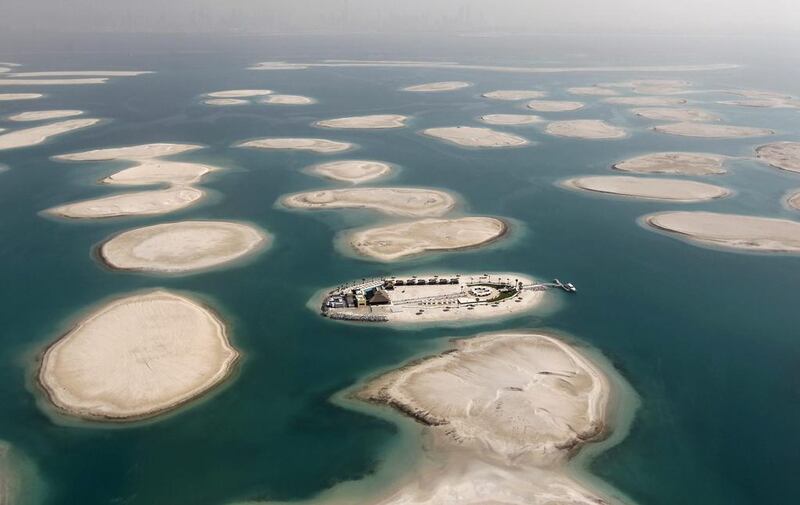DUBAI // It is only a small dot in the Arabian Gulf, but Lebanon island on The World development could soon hold one of the most exclusive resorts in the region.
The new owner of the island, which covers an area of 39,000 square metres, has submitted plans to master developer Nakheel to build a Maldives-style resort, complete with villas built over water and a spa.
The resort could be up and running by this time next year.
"Our ultimate goal is to become a boutique resort," said Raman Ravi, the owner of the island. "There's a lot of hotels in Dubai but none of them have the serenity and views from the island."
The island is open mainly for private events, in much the same way as the previous owner ran it.
But a nightclub will open next month and the Roads and Transport Authority has provided a dedicated water taxi that can accommodate up to 2,000 customers an evening.
A list of celebrity DJs is expected to be brought in, Mr Ravi said, although no names had been confirmed.
The swimming pool has been reshaped, the restaurant refurbished and an arch has been installed at the entrance to the beach club.
It was reported that Mr Ravi bought the island in November last year for Dh35 million but he declined to confirm the figure. He did say the hotel could cost up to Dh73m.
Most of the work would be completed on the mainland over the next year, he said, before being shipped to the island.
Coral could also be installed in a bid to attract marine life and divers.
Mr Ravi said the resort would have advantages over others in Dubai because of its location.
“It’s going to be very unique and natural, completely different from any other hotel in Dubai,” he said.
“It will be far away from Dubai, but yet so near. You’re only four miles away, but at the same time it feels like you’re in the Maldives or Seychelles.”
There are no utilities on the island. Fresh water needs to be brought in by boat from Dubai, along with diesel to power the generators that supply electricity, resulting in high operating costs.
Fifty tonnes of water arrives every three days at a cost of Dh6,500 a shipment. That will probably soon be increased to every other day as the number of visitors picks up.
A shipment of diesel arrives once a week, at a cost of Dh20,000.
“It’s definitely an expensive affair, having an island,” said Mr Ravi.
He said there were plans to decrease the costs by installing renewable energy devices, such as solar panels.
Mr Ravi said his team was also looking closely at experiments in Abu Dhabi and Dubai by the French company Eole Water, which has built a wind turbine that can condense potable water from humidity.
But he said those green initiatives were unlikely to meet all of the electricity and water needed and the island would continue to ship supplies in from the mainland.
Ian Albert, the regional director of property company Colliers International, said the problem with utilities would ultimately make or break the resort.
“It’s a very good concept,” Mr Albert said. “The problem is in the provision of electricity and water.
“The Maldives, for example, because of those reasons is an expensive resort. Making a high-end luxury resort on The World islands could be sustainable if the resort prices were high enough.”
He said Al Maha, the Dubai desert resort, faced similar problems with utilities but was extremely popular despite being expensive.
“It can be achieved but it depends on the overall level of resort you’re providing, the uniqueness and the quality of service,” said Mr Albert.
mcroucher@thenational.ae






